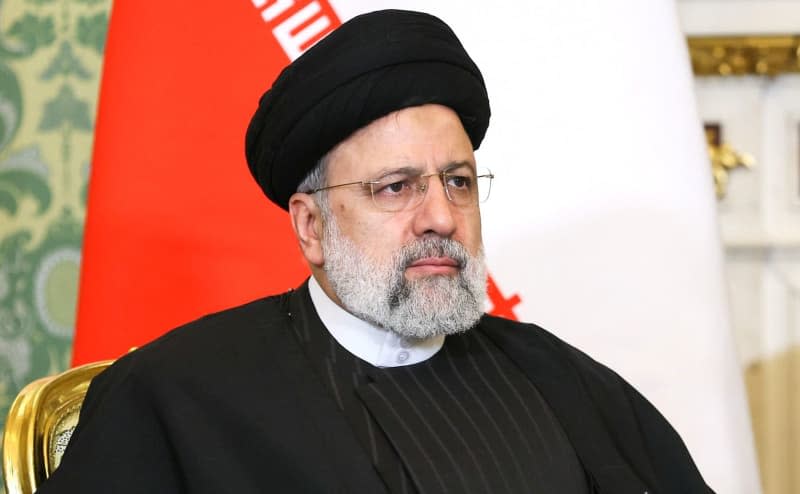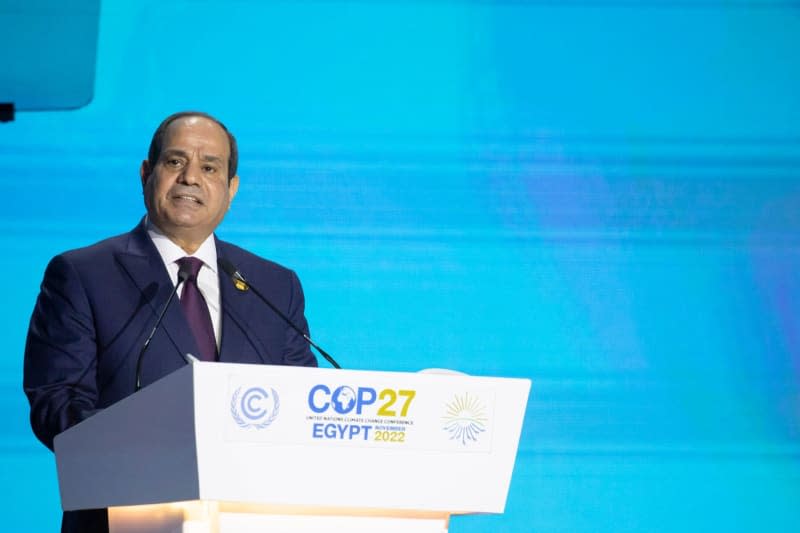Iran aims to rekindle diplomatic ties with Egypt after 40-year rift
December 26, 2023 | by b1og.net


Iran is making efforts to restore diplomatic relations with Egypt, following a 40-year rift that began in 1979 after the Islamic revolution in Iran. Egypt, being the first Arab country to recognize Israel and a prominent ally of the United States, severed ties with Iran during that period. However, in recent years, Iran has been striving to improve relations with Arab nations, and rekindling diplomatic ties with Egypt would signal a significant step toward strengthening regional cooperation. Both countries carry geopolitical influence and a resumption of diplomatic relations could potentially impact not only their bilateral ties but also the broader dynamics of the Middle East.
▶ [Kucoin] Transaction fee 0% discount CODE◀
Background of the Iran-Egypt Rift
Severance of Diplomatic Ties in 1979
The Iran-Egypt rift dates back to 1979 when diplomatic ties between the two countries were severed following the Islamic revolution in Iran. The revolution brought about significant changes in Iran’s political landscape, with the rise of Ayatollah Khomeini and the establishment of an Islamic Republic. These developments led to a strain in relations between Iran and many Arab countries, including Egypt.
Egypt’s Recognition of Israel
Another key contributing factor to the Iran-Egypt rift was Egypt’s recognition of Israel. In 1978, Egypt, under the leadership of President Anwar Sadat, signed the Camp David Accords, which paved the way for a peace treaty with Israel the following year. This move was met with widespread condemnation from the Islamic world, including Iran, and further deepened the rift between the two nations.
Egypt’s Alignment with the United States
Furthermore, Egypt’s alignment with the United States during the Cold War era further exacerbated the tensions between Iran and Egypt. As a key ally of the U.S., Egypt received significant military and economic aid from American sources. This alliance not only strained relations between Iran and Egypt but also contributed to a broader divide within the Arab world.
Iran’s Recent Efforts to Improve Relations
Iran’s Outreach to Arab Countries
In recent years, Iran has made efforts to improve its relations with Arab countries. This shift in strategy can be attributed to several factors, including a desire for regional stability and the pursuit of its own geopolitical interests. Iran has engaged in diplomatic initiatives, seeking to mend its strained relationships and build mutual understanding with Arab nations.
Signs of Rapprochement with Egypt
Evidence of a potential rapprochement between Iran and Egypt has begun to emerge. In January 2021, Egypt’s Foreign Minister, Sameh Shoukry, stated that Egypt was open to restoring full diplomatic relations with Iran, provided certain conditions were met. This statement marked a significant departure from Egypt’s previous stance and signaled a potential thaw in relations between the two countries.
Factors Influencing Iran’s Efforts
Regional Power Struggles
Regional power struggles play a significant role in shaping Iran’s efforts to improve relations with Egypt. As key regional actors vie for influence in the Middle East, Iran sees an opportunity to strengthen its position by mending fences with Arab nations. Improving relations with Egypt could enhance Iran’s regional standing and counterbalance the influence of its rivals in the region.
Security Concerns
Iran’s security concerns also contribute to its efforts to improve relations with Egypt. The challenges posed by terrorism and regional instability have prompted Iran to seek partnerships and cooperation with other countries. By fostering closer ties with Egypt, Iran aims to collaborate on security issues and address shared threats, ultimately fostering stability and peace in the Middle East.
Economic Interests
Economic interests also factor into Iran’s motivations to improve relations with Egypt. Both countries possess significant economic potential, and a restoration of diplomatic ties could create new avenues for trade and investment. Iran’s burgeoning economy and Egypt’s strategic geographic location make them potential economic partners, with opportunities for collaboration in sectors such as energy, tourism, and infrastructure development.
Egypt’s Response to Iran’s Overtures
Cautious Reception
Egypt has responded cautiously to Iran’s overtures and has emphasized the importance of certain conditions being met before a full restoration of diplomatic ties. Egypt is keen to ensure that any renewed relationship with Iran is based on mutual respect, non-interference in internal affairs, and the recognition of Egypt’s role as a regional power. This cautious approach reflects Egypt’s commitment to safeguarding its national interests and maintaining stability in the region.
Evaluation of Benefits and Risks
Egypt is carefully evaluating the potential benefits and risks of re-establishing diplomatic relations with Iran. While a renewed relationship could open avenues for economic growth and regional stability, Egypt is also mindful of the challenges and potential implications. Historical differences, divergent political ideologies, and concerns over Iran’s regional ambitions are among the factors Egypt must weigh when considering the potential benefits and risks of a restored relationship.
Implications of Restored Diplomatic Ties
Enhanced Regional Stability
Restored diplomatic ties between Iran and Egypt could have significant implications for regional stability. Improved relations would facilitate constructive dialogue and cooperation, helping to address common challenges facing the Middle East. By fostering greater understanding and collaboration, Iran and Egypt could contribute to easing tensions and bridging divides in the region.
Economic Opportunities
A restoration of diplomatic ties would also unlock economic opportunities for both Iran and Egypt. Enhanced trade relations, investment, and tourism between the two countries could generate economic growth and job creation. Strengthened economic cooperation could further diversify their economies and contribute to greater regional economic integration.
Impact on Middle East Dynamics
The re-establishment of diplomatic ties between Iran and Egypt would undoubtedly reshape the dynamics of the Middle East. Traditional alliances and power balances would be affected, potentially leading to shifts in regional politics and the influence of various actors. The outcome of this renewed relationship would not only impact Iran and Egypt but also reverberate throughout the larger Middle East region.
Challenges in Rekindling Diplomatic Ties
Historical Baggage
One of the primary challenges in rekindling diplomatic ties between Iran and Egypt is the historical baggage accumulated over the past four decades. The deep-rooted mistrust and animosity resulting from past conflicts and differences in political ideologies can pose significant hurdles to rebuilding trust and establishing a stable relationship.
Religious and Sectarian Differences
Religious and sectarian differences also present challenges to restoring diplomatic ties. Iran’s predominantly Shia population and Egypt’s predominantly Sunni population have often been at odds religiously and politically. These differences have historically fueled tensions between the two nations, and resolving them would require sensitive and inclusive approaches.
Political Obstacles
Political obstacles, both domestically and internationally, can impede the reestablishment of diplomatic ties between Iran and Egypt. Various stakeholders, including political factions within both countries, regional powers, and external actors, may have differing priorities and interests. Overcoming these political obstacles will require meaningful dialogue, compromises, and a willingness to navigate complex geopolitical dynamics.
Possible Areas of Cooperation
Security and Counterterrorism
One potential area of cooperation between Iran and Egypt is in the realm of security and counterterrorism. Both countries face common threats such as terrorism, extremism, and regional instability. By sharing intelligence, coordinating efforts, and fostering collaboration, Iran and Egypt could contribute to enhanced security measures and effectively combat these shared challenges.
Economic and Trade Relations
The restoration of diplomatic ties would pave the way for greater economic and trade relations between Iran and Egypt. Collaboration in sectors such as energy, agriculture, tourism, and infrastructure development could yield significant mutual benefits. By leveraging each other’s resources and expertise, both countries could unlock new economic opportunities and foster sustainable growth.
Cultural and Educational Exchanges
Cultural and educational exchanges are another avenue for cooperation and understanding between Iran and Egypt. By promoting people-to-people connections, fostering academic partnerships, and facilitating cultural exchanges, the two nations can bridge divides and promote mutual understanding. These exchanges can contribute to a more nuanced and inclusive perception of each other’s societies, fostering long-term cooperation and engagement.
The Role of External Actors
United States’ Response
The United States, as a major player in the region, will closely observe and respond to any developments in the Iran-Egypt relationship. The U.S. has historically been aligned with Egypt and has had strained relations with Iran. How the U.S. responds to a rekindling of diplomatic ties between Iran and Egypt will depend on its assessment of its national interests in the Middle East and its relationship with Egypt.
Saudi Arabia’s Perspective
Saudi Arabia, a key regional rival of Iran and a close ally of Egypt, will also closely scrutinize any progress in the Iran-Egypt relationship. Saudi Arabia has long viewed Iran as a regional competitor and has been concerned about its expanding influence in the Middle East. The stance of Saudi Arabia towards a renewed relationship between Iran and Egypt will reflect its own strategic interests and rivalry with Iran.
Israel’s Concerns
Israel, as a pivotal player in the region, will likely closely monitor and express concerns about any improvement in Iran-Egypt relations. Israel has viewed Iran as a major security threat and has had a complex relationship with Egypt, marked by elements of both cooperation and tense moments. Israel’s response to a potential rapprochement between Iran and Egypt will be guided by its own strategic considerations and concerns about regional stability.
Timeline of Recent Developments
Initial Overtures
Iran’s initial overtures towards Egypt began in recent years as part of its broader efforts to improve relations with Arab countries. Diplomatic contacts and cautious statements signaled a willingness to engage in dialogue and potentially restore diplomatic ties. These initial steps laid the groundwork for future developments between the two nations.
Key Meetings and Talks
Key meetings and talks between Iranian and Egyptian officials have taken place to discuss the restoration of diplomatic ties. These discussions have likely addressed various issues, including historical grievances, political concerns, and potential areas of cooperation. Through these dialogues, both countries have sought to lay the foundation for a sustainable and constructive relationship.
Progress and Challenges
While progress has been made in the form of increased willingness to engage in dialogue, significant challenges remain in reestablishing diplomatic ties between Iran and Egypt. Overcoming historical animosities, addressing deep-rooted differences, and navigating complex geopolitical dynamics continue to present obstacles. These challenges must be faced with patience, understanding, and a commitment to long-term stability and cooperation.
Conclusion
Prospects for Reestablishing Diplomatic Ties
The prospects for reestablishing diplomatic ties between Iran and Egypt are promising, but uncertainties remain. Both countries have shown a willingness to engage in dialogue and explore the potential benefits of improved relations. However, challenges such as historical baggage, religious differences, and political obstacles must be carefully addressed to pave the way for a sustainable and constructive relationship.
Potential Impact on Regional Dynamics
A restoration of diplomatic ties between Iran and Egypt would have far-reaching implications for the Middle East’s geopolitical landscape. Enhanced regional stability, increased economic opportunities, and reshaped power dynamics are among the potential impacts. The outcome of this renewed relationship will not only influence Iran and Egypt but also shape the broader dynamics of the Middle East, impacting various actors and stakeholders in the region.
RELATED POSTS
View all





